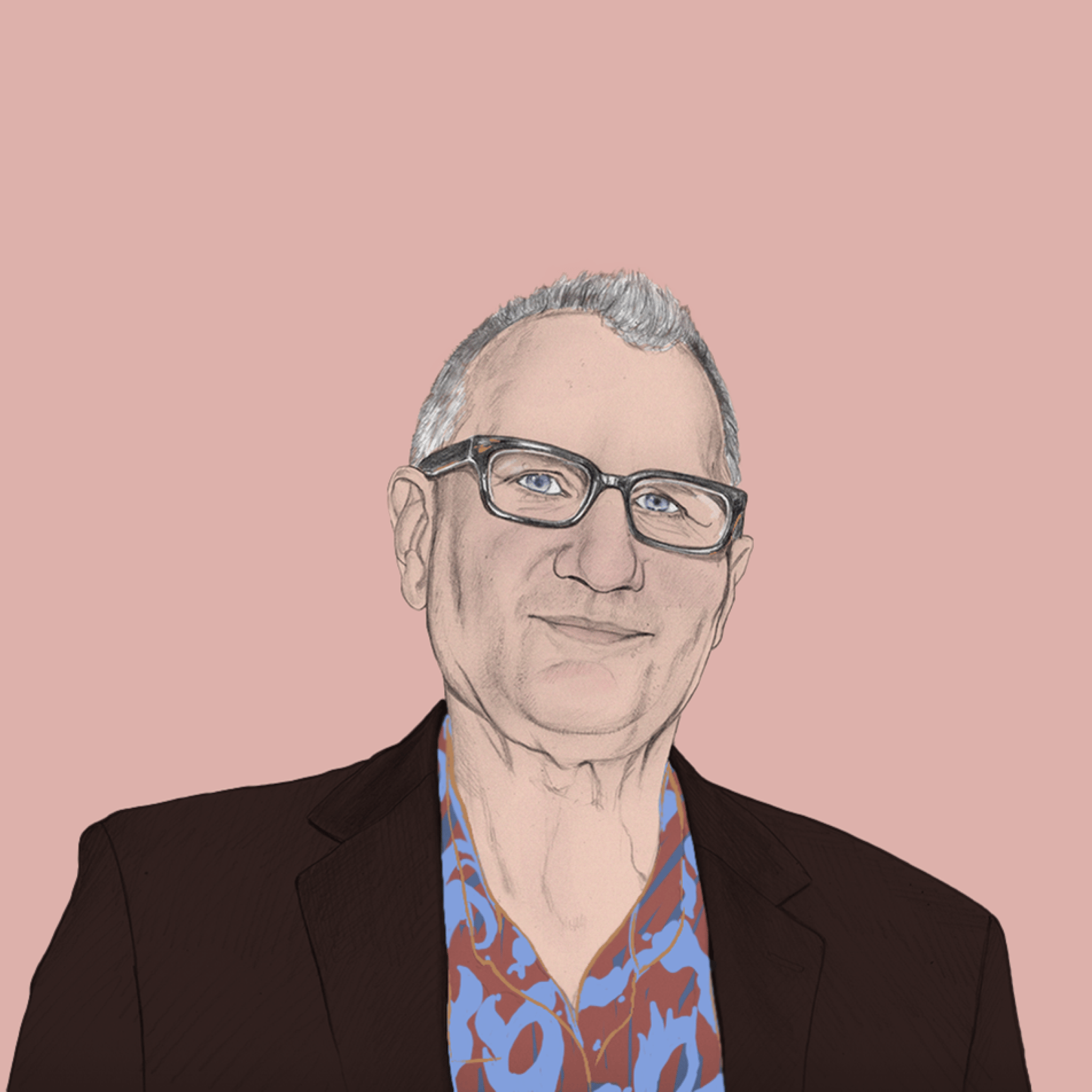
Money Diaries
How to Go From Working in a Steel Mill to Being the Highest Paid Actor on TV
Ed O’Neill made his career during the era when networks dominated TV, starring in “Married... With Children” and “Modern Family.” He also gives a stunning performance in the recently released film “The Last Shift,” a new comedy about working-class life. He opens up to Wealthsimple about earning $300 a week in a steel mill in Youngstown and getting a $3-million bonus in Hollywood.
Wealthsimple makes powerful financial tools to help you grow and manage your money. Learn more
I remember when I was living in New York and I was first offered the part as Al Bundy on a new sitcom called “Married... With Children.” My agent didn’t want me to take it. Things were going well in New York and they thought I should pursue more serious roles on stage and in films. I was making $400 to $600 a week on Broadway and “Married... With Children” was offering me $10,000 per show for a pilot and six episodes. I told my agent, “Hey man, I’m 32 years old. Nobody knows who the fuck I am. I’m not gonna turn this down. It’s too much money.”
I had no idea that “Married... With Children” would become one of the biggest TV shows of its time, and run for 11 years. By the eighth season, I was the highest-paid actor on television, making almost a million dollars a show.
I grew up in a steel mill town in the heart of the Rust Belt—Youngstown, Ohio. My dad weaved between jobs at the mill and long bouts of unemployment. My mom was a social worker. To say we were “lower middle-class” isn’t quite right. We aspired to be lower middle-class. In truth, it was more of a lower-class childhood.
My parents fought constantly about money. They had different spending habits. My dad had grown up in real poverty and was extremely frugal. But my mom was from a better part of town, and more loose in her spending, which drove my dad crazy. This often led to shouting matches. Sometimes my mom would tell my dad she was leaving, slam the door, and head off down the street. My siblings and I would go chasing her. “Mom! Mom!” we’d cry, begging her to come back home.
We lived in a ramshackle apartment building on the north side of town, between the train tracks and public housing projects. But not too far away were some of the city’s wealthiest neighbourhoods. So I always knew that there were people who lived life without bruising toil and constant struggle. As a kid, I’d walk through those neighbourhoods and fantasize about one day living in one of those houses.
At 14, I started working construction jobs, and when I got to college, I started working in the steel mills—slagging in the open hearth and helping the boilermakers. The boilermakers are the guys who repair the mill. My job was to drag their CO2 cart inside a downed furnace and pass them tools while they used their welding torches to fix the furnace. You could only stay inside a furnace for five minutes at a stretch, because you’d literally catch on fire. You could feel the graphite in the air singeing your lungs. These days, they have safety regulations against doing exactly the work we were doing all day, every day. But it wasn’t the physical duress that repelled me. What I hated most was that every time I bought an egg sandwich on white bread at the canteen, I had to cram it in my mouth and swallow the whole thing quickly; otherwise, the black smoke in the air would turn the sandwich a strange shade of brown.

Sign up for our weekly non-boring newsletter about money, markets, and more.
By providing your email, you are consenting to receive communications from Wealthsimple Media Inc. Visit our Privacy Policy for more info, or contact us at privacy@wealthsimple.com or 80 Spadina Ave., Toronto, ON.
If I cleared $300 for two weeks of work, that was a big cheque. You’d cash it at a little trailer right outside the mill gates. There was no better feeling than walking out of that trailer with a fresh wad of bills. I was never one to spend lavishly, but on payday I loved going out for beers at a bar next to the mill called The Open Hearth. Each beer was 50 cents, and I could spend a night drinking without worrying about how I was going to cover the tab. On the weekend, still flush with cash, I’d go to a grungy bar called The Palm Gardens and stuff myself with roasted lamb, grilled by the Ukrainian guys in the kitchen, while my buddies and I watched the Steelers game on TV. There wasn’t a palm tree within 1,500 fucking miles, but The Palm Gardens had just enough whiff of the exotic to light in my imagination some sense of the world beyond Youngstown.
In college, I played football, first at Ohio University, and then back home at Youngstown State. I never got along with my coaches; they were meatheads, assholes, and drunks. But the football scholarships helped me get through school. I had a talent for it, and liked the physicality—I was good at tackling people. After my senior year, the Pittsburgh Steelers signed me. It was Chuck Noll’s first year as head coach; I was a rookie with “Mean” Joe Green and the rest of the guys who went on to win Super Bowl titles.
My signing bonus was $1,200—a thrilling, astounding figure. I was completely broke, and this was more money than I’d ever seen at one time. Chuck Noll was the first coach I ever really got along with, but the Steelers had a different defensive system than my college teams. They shifted me from guard and linebacker to outside linebacker, and I struggled to find my place. Eventually, I was cut and headed home to Youngstown again—and that’s when I got involved in theatre. In high school, I’d acted in a few plays—and had secretly enjoyed it. But I had to keep it under wraps to avoid getting razzed by the guys on my football team. Still, a match had been lit, and I knew it was something I wanted to explore a bit more one day.
I got a job running the campus pub at Youngstown State and started hanging out around the theatre department. Even though I wasn’t a student anymore, they needed actors for their student plays, and gave me parts in classics by Thornton Wilder, Tennessee Williams, and Eugene O’Neill. The theatre students thought I was a meathead, a jock, a brute, and they shunned me, while my old football friends, when word got out that I was involved in theatre, thought I’d gone completely goofy. But they never gave me too hard a time, because they knew I liked to fight. My father was a good fighter and had taught me some rudimentary, but crucial basics: Never get a guy in a headlock, because a headlock reverses too easily, and ties your hands up. My strongest arm was my right arm, but I had a good left hook. I got in dozens of scraps, and clipped a lot of guys with that punch. So my friends knew when to back off.
Eventually, a bold and kind of crazy idea settled into my mind—to move to New York and try to make it as an actor. Really, I had nothing to lose. I was almost 30, living in my hometown, and making ten grand a year. So I sold my car, packed a gym bag with a few clothes, and got on a bus to New York.
I found a room in a residential motel called The Imperial Court on 79th Street and West End. There was nothing imperial about it. What had once been an elegant old building was now essentially a burial ground for the old, infirm, and destitute. Rent was paid weekly. The rooms had no kitchens, so I cooked myself meals on an electric hot plate. I worked at cafés, and as a busboy at fancy restaurants, making $40 a shift, on a good night. My chances of breaking into the theatre world seemed bleak—at best—and usually nonexistent.
But it’s funny how unexpected bits of serendipity unfold, and how one little hiccup of luck can lead to another. Eventually, I got a job at O’Neal’s Balloon, a famous bar and restaurant on 64th Street, across the street from Lincoln Center. O’Neal’s was basically an upscale burger joint that serviced all the people in a hurry before they went to the ballet, plus the dancers themselves from the Joffrey and the American Ballet companies. Even Mikhail Baryshnikov was a presence. Others too: Woody Allen, Dick Cavett; famous folks heading to Lincoln Center for a show. It felt great to be around entertainment bigwigs, even if I was just serving them a drink.
My signing bonus with the Pittsburgh Steelers after senior year was $1,200—a thrilling, astounding figure. I was completely broke, and this was more money than I’d ever seen at one time.
Recommended for you
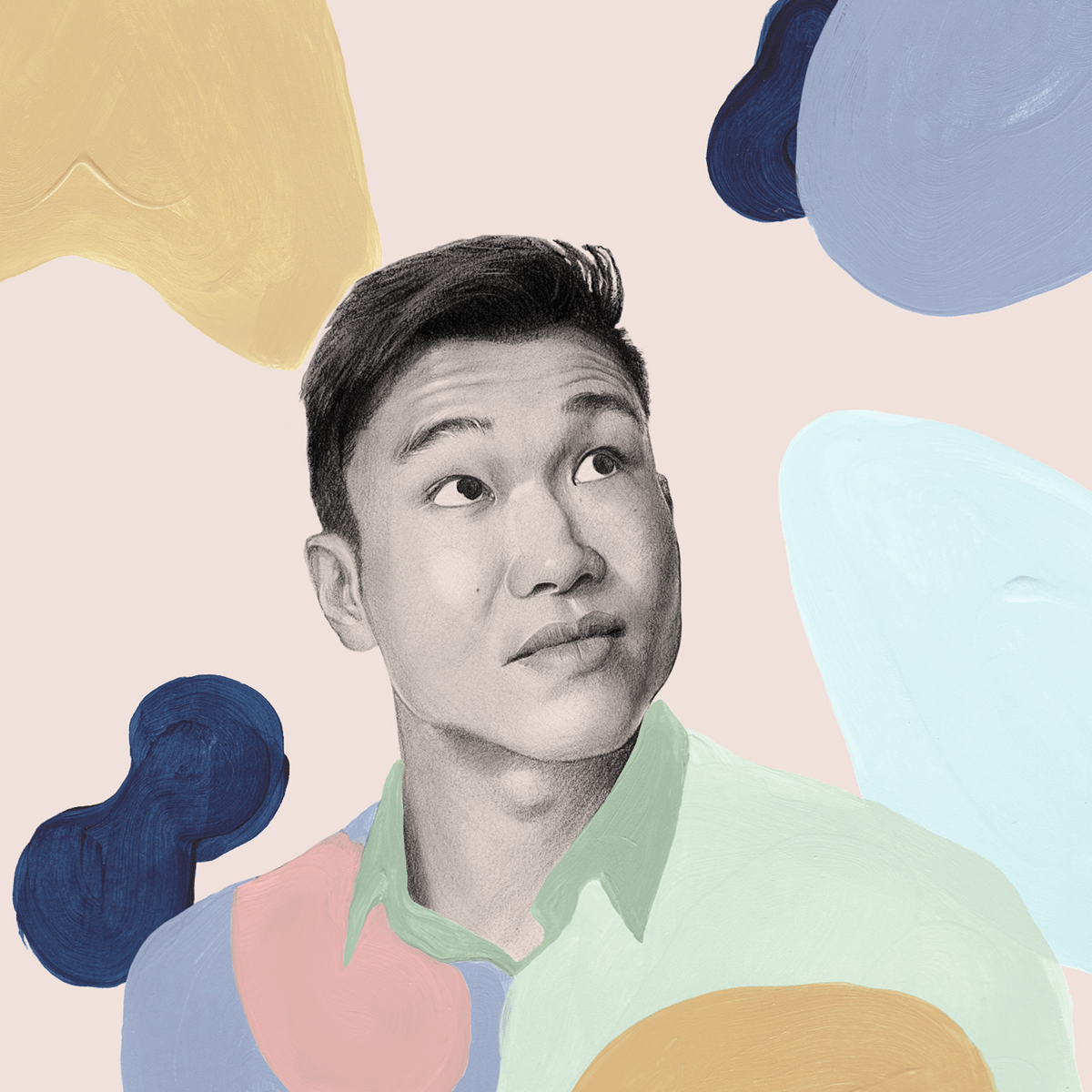
Joel Kim Booster Was in Massive Student Debt Until Two Years Ago
Money Diaries
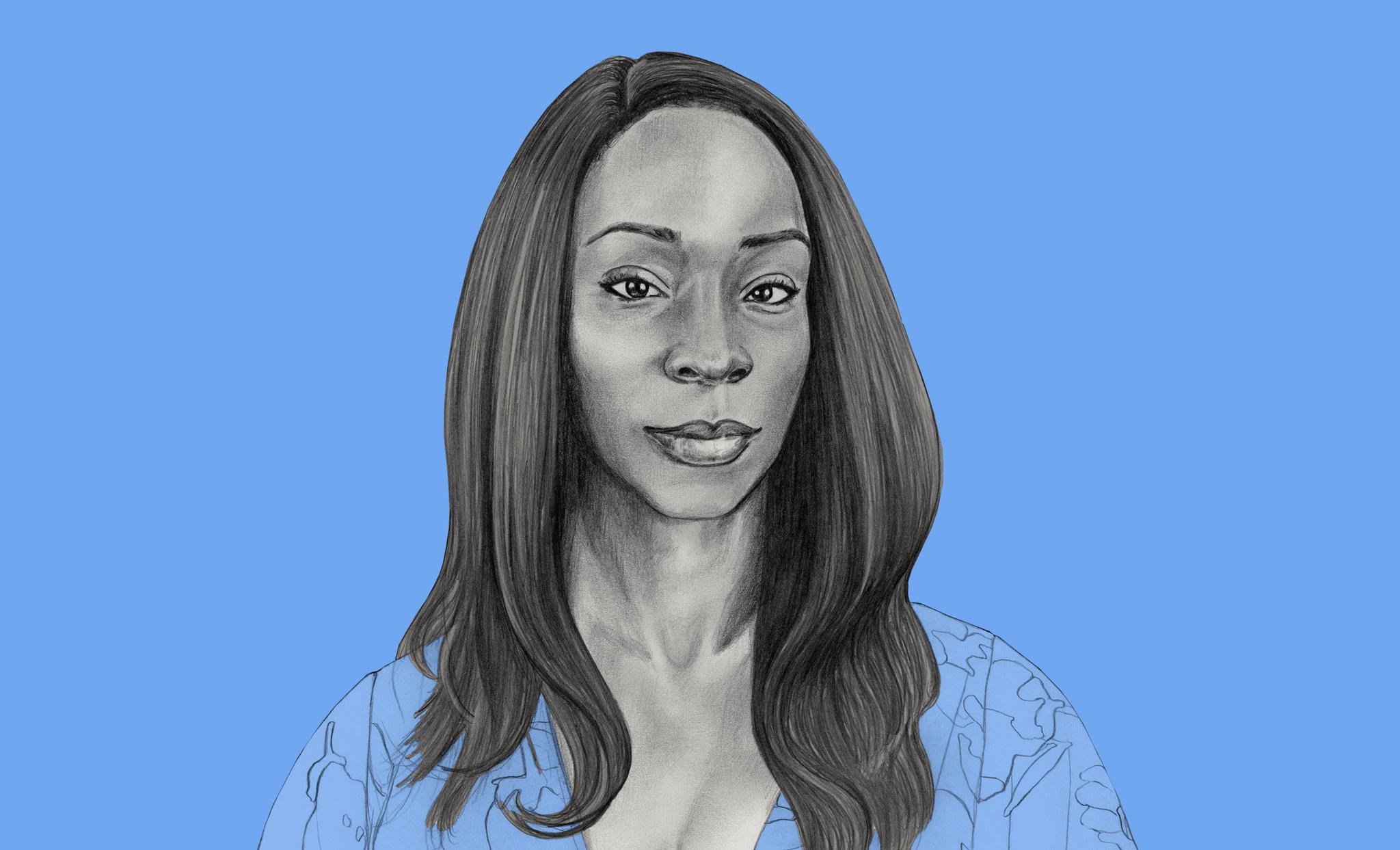
The World Wouldn't Make a Place for Angelica Ross. So She Made One for Herself
Money Diaries
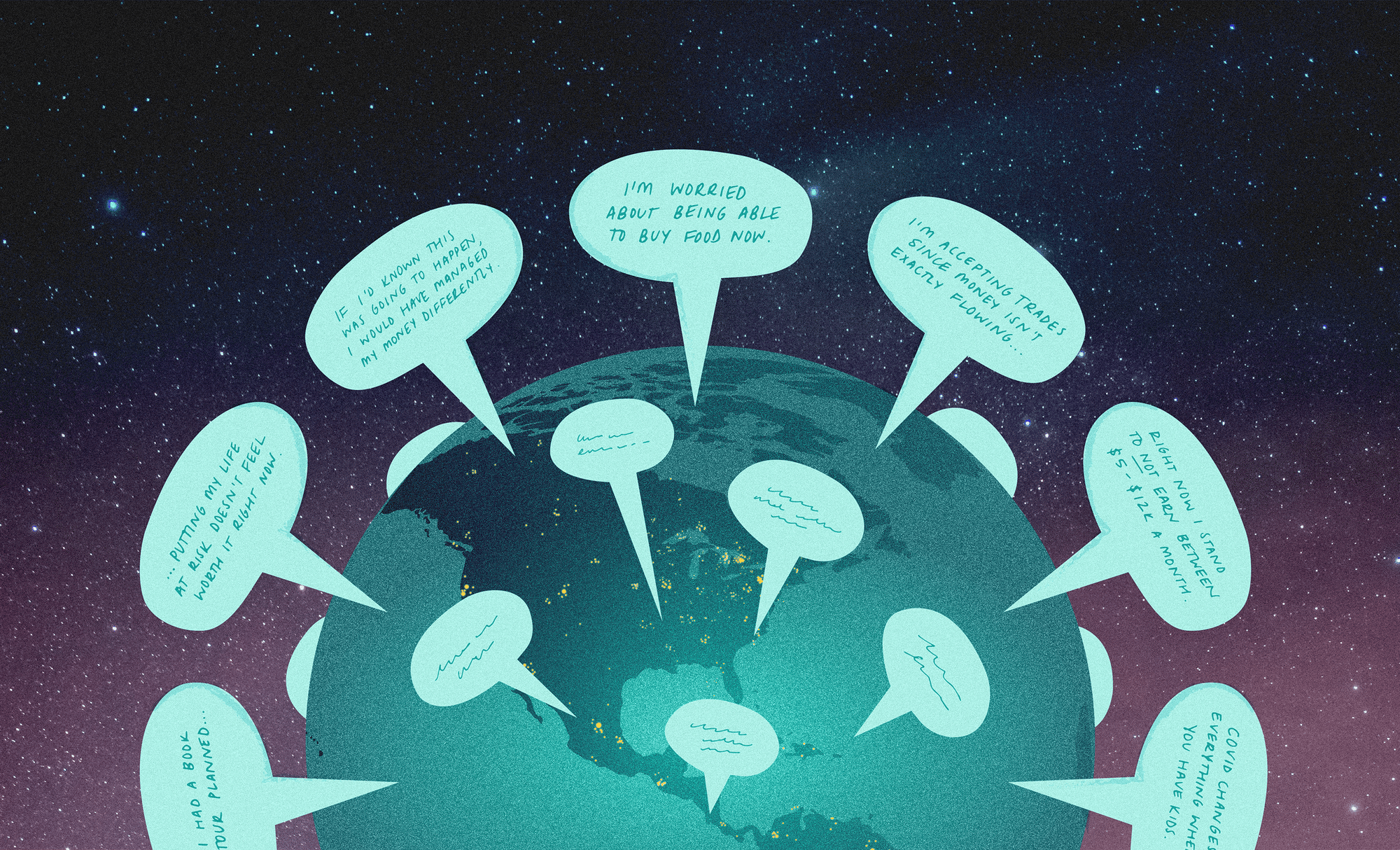
Pandemic Money Diaries — Panic at Trader Joe’s Edition
Money Diaries
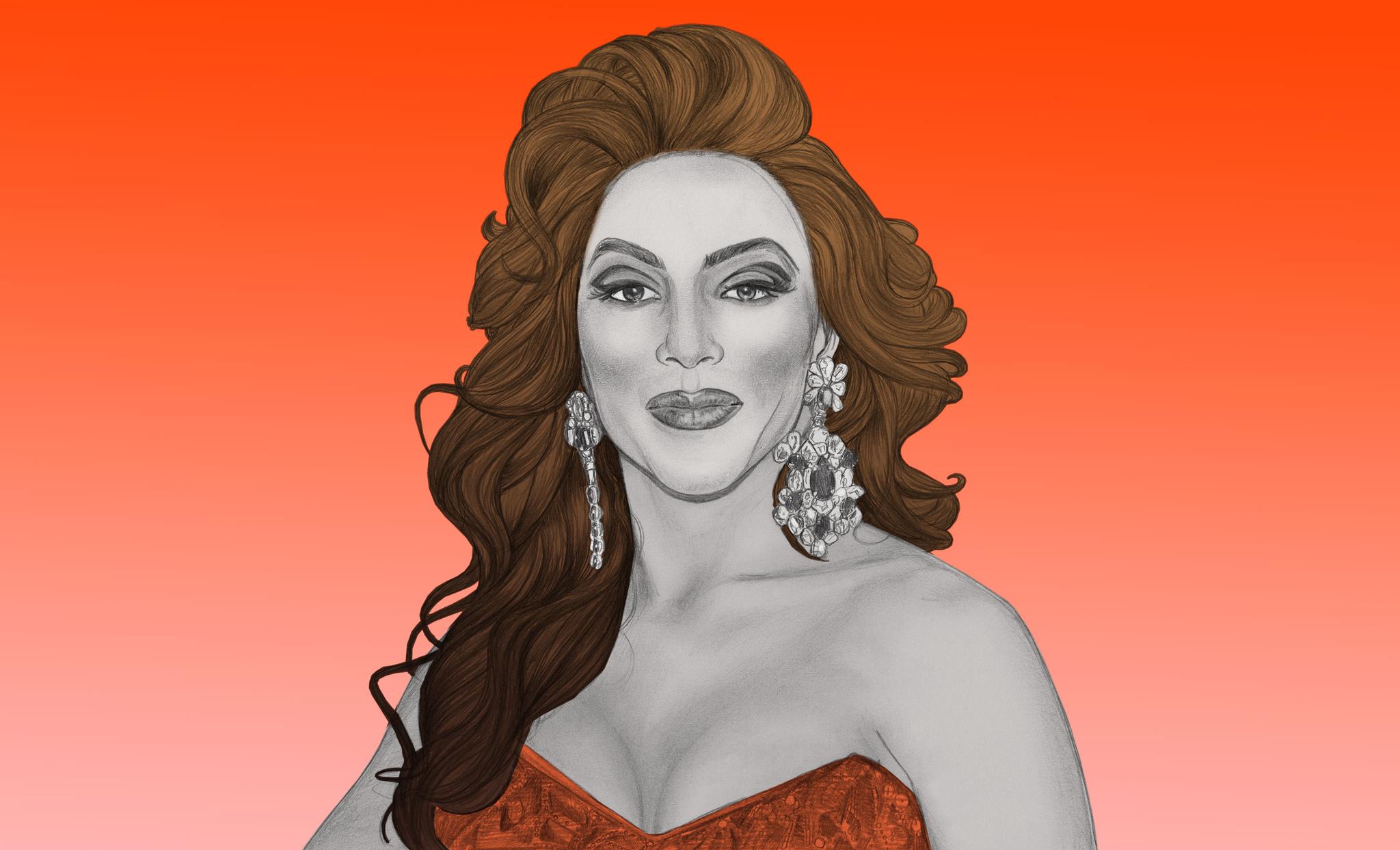
Shangela Would Like to Remind You to Tip Your Drag Queen
Money Diaries
At O’Neal’s I met a guy named Joe who was a young, handsome, and talented actor making some moves, and he’d just been cast in the play “Knockout” on Broadway as a middle-aged boxer, co-starring with Danny Aiello. I had just done an off-, off-, off-Broadway play called “Requiem for a Heavyweight,” completely unpaid, because I’d take any role that anyone offered me. Joe said, “I heard you did a play about a boxer. You know how to box?” I told him I’d only played a boxer, but that I knew how to fight. He said, “That’s great! Could you show me?” So I taught him the same basics my dad had taught me: left jab, left hook, right hand, body shot, body punch. And: Never put someone in a headlock.
One day, as I was showing Joe some moves, he said, “Man, you should be my understudy.” He made an appointment to introduce me to the director, Frank Corsaro, who was one of the most famous directors in the city; Danny Aiello, who starred in the play; and also the play’s technical director, Jose Torres, who had been the light heavyweight champion of the world, and was close with Cus D’Amato, Norman Mailer, and Muhammad Ali. The meeting was set at a boxing gym on 23rd Street.
So we went down and I started on heavy bags, and then they had me move around with another fighter a little bit, and we threw light punches, careful not to hurt each other. When I came out of the ring, Jose Torres came over to me and said, “Where did you fight pro?” I said, “I’m not a pro.” And he said, “Get the fuck out, man. I know a pro when I see a pro.” I told him again, “I’m not a pro,” and he said, “No shit! You look like a pro, man!”
The next day, they had me come to the theatre, on Broadway, to read lines with Danny Aiello. And then Aiello and Corsaro, the director, huddled for a moment, and turned to me. “You know, this job only pays $400 a week,” Corsaro said. “Fine with me,” I said. Corsaro asked for my phone number, and I was too embarrassed to tell him that I was living in a weekly motel and didn’t have a phone. I gave him the number to an answering service, which was like a shared voicemail system. “Okay, I’ll call you,” he said. “Guess what? You got the job.” I walked out of the theatre, mind-blown, walked into a bar across the street called Ma Bell’s, at one in the afternoon, and had the most satisfying beers of my life.
It was never my intention to take the part from the guy I was understudying, but at some point Aiello and Corsaro had a little pow-wow. Then they fired Joe and hired me to take his place. Joe never forgot it, but we both knew it wasn’t my fault; they were making the choice they thought was best for the play. Suddenly, against all odds, I was on Broadway, in a starring role—all because my dad had taught me how to box.
From there, I got an agent at ICM and started auditioning for film roles. The Hollywood director William Friedkin came to see “Knockout” and cast me as a detective in his film “Cruising,” starring Al Pacino. At the first rehearsal, I’m staring at Pacino, thinking, “Holy shit, that’s Al Pacino—The Godfather—what’s going on?!”
But yeah, I took the role on “Married... With Children,” and I ended up doing the show for 11 years. “Modern Family” went 11 years. At this point it's not about the money for me. I don't need to work. I've got more than I could ever spend... And that's saying something, because you know I like buying cars, and now I like buying houses. I did “The Last Shift” for nothing. I think I did it for, I don’t even know what I did it for, it might have been $8,000 or I think it was more like $10,000. But, I wanted to know what it was. The exact number. Because I don't care if it's like a million bucks for a big TV show or ten grand for a small film, it all means one thing: I'm a paid actor. Which is all I ever wanted to be. But there was a time it did matter.
When I got the role on “Married... With Children,” my agent was a guy named Bernie Brillstein. He was canny and knew I liked cars; one time, during a contract negotiation, he got the head of Columbia to buy me a $90,000 Porsche. And while the studio would rather give you their firstborn child than give you points on the back end of a show’s profits, Bernie was careful about building a series of bonuses into my contracts. So one night, after we finished shooting an episode, one of the heads of Sony gave me an envelope with a bonus cheque. I said, “Thank you,” and put it in the pocket of my jeans. I could see he was disappointed; he’d wanted me to open it in front of him. I started bullshitting with him. “How’s your golf game been?” Then I headed out. “Don’t lose that cheque!” he said. “Nah,” I replied. “It’s in my fucking pocket.”
On Friday nights, after we finished taping, I always went by myself to an Italian restaurant called Drago on 26th and Wilshire. It was my own quiet way of celebrating the end of another week of work—the same way I’d drink beers on Friday nights at the local dives when I worked in the Youngstown steel mills. By the time I got to Drago, late on Friday nights, everyone was leaving, and I always sat at the same table in back, and my favourite waiter would bring me a nice $60 bottle of wine, and a plate of antipasto.
That night, I remembered, Oh, I’ve got this cheque in my pocket! I pulled it out, smoothed out the envelope and opened it. And at first I thought I had read it wrong. I thought it was going to be around $300,000, which would still be amazing and insane to receive as a bonus cheque. But then I looked again a second time, and then a third. The cheque was for three million, four hundred and fifty thousand dollars, and some change. I had to keep looking at it over and over, to try to absorb what that really meant. That’s actually three million dollars. Right here. In my hand. It started to sink in that I had made three million dollars for acting! Something that had always been my hobby, and something I would’ve been doing whether I was paid for it or not. And then I understood why the Sony guy had wanted me to look at the cheque. I’d deprived him of the chance to see my face when I opened it. But I was happy I’d waited and been alone.
I put the cheque away, and called out to the waiter. “Silvio! That wine, you didn’t open it yet?” “No.” I said, “Get me another one. Get me one for about a hundred-fifty a bottle.” I didn’t want to be extravagant, but I wanted to acknowledge the moment. “What are you celebrating?” Silvio asked.
I thought back to the shouting matches my parents had had over money and how hard they had worked to keep the heat on in winter. And my college years in the steel mill. I wasn’t crying, not really, but I found that my eyes were a little wet. “Not celebrating anything in particular,” I told Silvio. “Just a good week of work. Friday’s payday, you know.”
Silvio brought out the $150 bottle of wine, poured me a glass, and I invited him to join me and pour one for himself. “To payday,” Silvio said. We clinked our glasses together and I guzzled mine down. That was the best goddamn glass of wine I’ve ever had.
Davy Rothbart is an Emmy Award-winning filmmaker whose latest film, “17 Blocks,” will be released in 2021. He's also the creator of Found Magazine, a frequent contributor to NPR's “This American Life,” a bestselling author (“My Heart is an Idiot”), and the founder of Washington To Washington, an annual hiking trip for city kids. He lives in Los Angeles.





